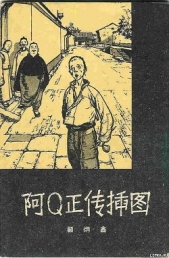Candy (chinese)

Candy (chinese) читать книгу онлайн
An international literary phenomenon-now available for the first time in English translation-Candy is a hip, harrowing tale of risk and desire, the story of a young Chinese woman forging a life for herself in a world seemingly devoid of guidelines. Hong, who narrates the novel, and whose life in many ways parallels the author''s own, drops out of high school and runs away at age 17 to the frontier city of Shenzen. As Hong navigates the temptations of the city, she quickly falls in love with a young musician and together they dive into a cruel netherworld of alcohol, drugs, and excess, a life that fails to satisfy Hong''s craving for an authentic self, and for a love that will define her. This startling and subversive novel is a blast of sex, drugs, and rock ''n'' roll that opens up to us a modern China we''ve never seen before. – Banned in China -with Mian Mian labeled the ''poster child for spiritual pollution''-CANDY still managed to sell 60,000 copies, as well as countless additional copies in pirated editions. – CANDY has been published in eight countries to date and has become a bestseller in France.
***
Sex, drugs, and rock 'n roll: ingredients for novels about modern China? Yes, SHANGHAI BABY by Wei Hui (Pocket Books, 2001) showed international readers modern Chinese youth were not immune to the running dogs of Western decadence: Globalization might even include mixing with dissolute foreigners. Following SHANGHAI BABY to English by a few years, Mian Mian now suggests with CANDY the decadence is more likely homegrown, possibly an inevitable side-effect of China's ascension to manufacturing colossus for the world. After this first novel by Shanghainese Mian was banned in China -an "honor" Wei Hui also earned – she was labelled a "poster child for spiritual pollution."
The buzz made CANDY an underground bestseller.
Whether Mian Mian harvested autobiographical details for her protagonist Hong's drug-plagued odyssey is open to question. She prefaces the novel with a note: "This book exists because one morning as the sun was coming up I told myself that I had to swallow up all of the fear and garbage around me, and once it was inside me I had to transform it all into candy. Because I know you all will be able to love me for it."
In a larger context, Hong's story, the characters in her life, often resonate with American stories we've heard of the Old West and Gold Rush days (whether in California or Alaska). She leaves Shanghai to seek her future in the new frontier of the Special Economic Zones the Chinese government created along the south coast in the 1980s, near Guangzhou. Not only did the SEZs permit a laissez faire approach to business-much of the Confucian social rules that apply elsewhere are ignored. In the SEZ thick with fortune seekers and finders, prostitution flourishes, as does alcohol and drug addiction.
Hong, only 17, has dropped out of a competitive high school, somewhat dispirited by the suicide of a classmate (an echo of Murakami's NORWEGIAN WOOD), when she leaves for the south. There she meets a young musician Saining and they become lovers, so often hopeless for each other and so often hopeless for their addictions. They survive, slacker-style, largely by the generosity of Saining's mom, who lives in Japan.
Hong's love for Saining has compelling moments of violence, promiscuity, and druggy indifference. But the greatest achievement of Hong's story, perhaps, is the honest testimony to the erasure of desire, the great sucking away of soul only addiction can wreak on a love that nonetheless won't go away. From a null point, from a Murakami-esque death in life, Hong goes on to find redemption can be hers.This stark portrait is not without lighter moments. For example, Hong's friend Bug is convinced he has AIDS. The horror of that discovery is brought alive. Page after page: consultation with friends, plans to leave the country, examination by a Beijing AIDS specialist. Finally, the revelation too many OTC drugs to get high had caused the troubling symptoms.
Like Murakami's post-consumerist young generation in Japan, Mian Mian suggests the same search for individual authenticity is underway in China. As China 's economic engine gains force, so does disillusionment among the young with the old ways. Hong suggests her ambivalence towards China 's rising star: "The moment the plane left the ground, I fucking burst into tears. I swore I would never come back to this town in the South again. This weird, plastic, bullshit Special Economic Zone, with all that pain and sadness, and the face of love, and the whole totally fucked-up world of heroin, and the late 1980s gold rush mentality, and all that pop music from Taiwan and Hong Kong. This place had all of the best and all of the worst. It had become my eternal nightmare." Hong awakes before the CANDY is gone. Mian's compassion for youth of New China elevates and brings irony to a story lesser writers might have passed off as sensation-ridden heroin chic.
Внимание! Книга может содержать контент только для совершеннолетних. Для несовершеннолетних чтение данного контента СТРОГО ЗАПРЕЩЕНО! Если в книге присутствует наличие пропаганды ЛГБТ и другого, запрещенного контента - просьба написать на почту [email protected] для удаления материала
星期一早晨,支气管一阵剧烈痉挛。“太阳升起来了,黑暗留在后面。”太阳多温暖,生活多美好,“空气里都有情侣的味道”。
星期一早晨,一场精心策划的“自然的煤气事故”因父亲的突然归来而面目全非,呈现于我眼前的是父亲的一滩血水。
救护车又一次停在了我家的楼下。医护人员命令我父亲一只手提看氧气袋一只手帮忙抬担架。他们责怪他动作迟缓的声音刺痛了我的耳朵,父亲苍老的面容更使我最终昏迷了过去。回
海洛因似乎是和我们没有关系的,其实它就在我
们身边,它一直就在的。我曾经试过各种毒品,海洛因只是其中对我影响最大的。我的肺已千疮百孔,我的声带已被毒品和酒精破坏,我永远不可能再上舞台,在刚刚有点确定该如何去歌唱的时候,我却再也不可能成为一个歌手了,而我的大脑像一张漏眼的网,我的记忆力严重受损。这些只是代价的一部分,每一个走进我房间的人都为我的错误付出了代价。而某些与海洛因有关的性格将永远停留在我生命里,有些代价是看不到的,它影响着我每时每刻的生活。
朋友请我去电台做节目,关于海洛因的节目。这在以前我是绝对不会答应的。赛宁已经离开世界了,真的不愿意再有什么人这样的离开。我想我必须得答应做这个节目。
我在节目里分别和想尝试吸毒的、正在吸毒的、吸毒者的家长谈了我的体会和经验。我说了赛宁的故事,说了他曾是如何的可爱,如何的喜爱生命。最后有人问我可不可以告诉大家你的名字,我说不可以。
当然,会有人问那个刺痛我的问题:当初你为什么吸毒?
我说因为我不了解它,因为我不了解生命力,我只是想坠落,我选择让海洛因主宰我的生命。而我现在明白所谓的生命力就是:死是那么不容易,而活着只是因为你想活着。
我没有说赛宁的死讯曾使我彻底丧失了生存的欲望,我更愿意在那时表现出我现在很正常。事实上这一次“自杀未遂”使我明白我是那种活在命运里的人,而自杀是件很不自然的事,那感觉不好,我不会再做。
最后有人问我那么你现在生活得很快乐对吗?
我说我摆脱了毒品,但我又会有新的狗屎,生活从来就是这样,不是吗?
我的节目受到专家的好评,节目录音被送去了北京。据说这个节目反映很好,专家们说那个“白粉妹”说得不错。
J
在我回到上海的第一个晚上,父亲曾说如果你选择海洛因是你的生命,我们尊重你,你告诉我你需要多少钱,我们可以给你,我们可以把全部的钱给你,甚至还可以去借,只要你说出来你要多少,但从此我们脱离父女关系。
父亲在赌自己是否了解我,我第一次开始欣赏他,我第一次说我不要海洛因。
在我第二次进戒毒所之前,父亲为我的光头买了一个发套,我没有戴,我看着父亲,第一次觉得内疚。
在我第二次进戒毒所的那个早上,母亲一直送我,美丽的母亲很动人,因为她的动人,我觉得我光着头的样子也很动人。
在我第二次进戒毒所的时候,在那把大铁锁被锁起来的时候,我突然想再次看一眼父亲,但父亲已进了电梯,他没有看到我对电梯的凝视。
学习爱与被爱,这是我唯一的希望,我对这希望存有期待。
这以后,我仍是无数次想到自杀,但每次一想到父母,我就真的没有办法行动。我开始懂得一点点什么是“爱”了,“爱”的代价之一是“必须控制”。
K
我接到了赛宁的电话。在电话里他说他是赛宁。我说你在哪里?他说他在北京。我说你在北京的哪里?我说在我见到你之前,不想听你说一句话。于是他告诉了我他的电话。
第二天的早上,我在首都机场的咖啡厅见到了我著名的赛宁,他还是原来的样子,长头发,大眼睛,厚嘴唇。他头发散乱着,外面这么冷,而他居然只穿了件黑毛衣,他站在那里看着我发呆,我们竟然都十分平静,至少表面上是这样。
你不是死于一包不纯的毒品了吗?
我不知道这谣传怎么来的,事实上我早就戒了。
我上个月因为你的死讯差点死于煤气中毒。你现在又出现了,你为什么总有那么多故事?
我是下决心来找你的。
为什么?
因为除了你,我没有别的。
你怎么可以离开所有的过去?你怎么做得出来?
我就是想离开,我觉得你也应该离开,我当时就这么觉得。
你现在和谁生活在一起?
我只有一个女朋友,那就是你。
你还玩音乐吗?
玩!
你还是不工作吗?
我妈妈帮我开了一个书店。
你当初为什么会吸毒?你为什么离开了我就戒了毒?我觉着我真的不了解你!你知道这是一种什么感受吗?你让我觉着自己很可怜。
我有问题。我现在还是有问题。我真的有问题。这是个过程。我对你所有的伤害都不是故意的。
你有什么问题?你的问题是自私和不负责任。是不是你在电台里觉着我的声音变了,又引起你的好奇了?
我没听到那节目,是别人告诉我的。你知道,我们是永远分不开的。
赛宁,我的嗓子坏了,我永远没法唱歌了,你了解吗?什么叫我们是永远不分开的?我们分开了。我们分开了,我的嗓子就坏了,再也好不了了。
我们的谈话是简单的一问一答,我们看上去都似乎不错,好像跟我们的故事一点关系都没有。我看见北京特有的那种冬日的阳光洒在我们身上,我看着这个我们曾经无比向往的城市,我看见它特有的阳光照亮了这场灾难。
赛宁的死讯最终令赛宁出现,我乖外的命运!
我们的谈话中有大段大段的空白。他什么问题都没有问我,我一直看着他,我一直看着他温润的睫毛。他偶尔抬起头来看我,这个混蛋的眼睛居然一点没变,我很气愤。
我们回家再聊好吗?
赛宁,你离开我的那一刻,天就塌在了我的身上。我不知该如何更正这个错误,我昨天还在为此痛不欲生。
赛宁,当所有的柔情成为一种恨,你会知道什么叫做痛。
赛宁,我曾经问过天问过地说什么才能让你回到我的身边呢?现在你终于出现了,我问你你要干什么?
我是真的一刻都没忘记过你,我是真的,我一直想打 电话给三毛,我一直想打电话给你,我很害怕,我找不到重聚的步骤。
赛宁,我很可怕吗?我们不是最爱最爱的吗?
两个小时以后,我让赛宁为我买了回去的机票。
在候机室,赛宁突然从背后一把抱住我,我感觉到他的身体,他的气味,他血液的温度,我并不知道这是不是我的赛宁。
他说对不起。
我说赛宁你以前从不对我说对不起的。你说过两个相爱的人永远不说对不起。
上飞机之前我说你要是死了该多好!我怀念那些为你的死讯站在窗前哭泣的日子。
这以后赛宁几乎天天打电话给我,我们的交谈一直比较尴尬。
有一次我说你不要再打电话过来了,但是你换地址必须得通知我,我会给你电话的。
我和三毛通过几次电话,我们一起在电话里大骂赛宁。
我再次确认了如今的我是一个没什么幸福可言的女人,我期待着自己30岁以后可以活出点味道来。
我为我的北京之行写了一首歌,我弹着赛宁留下的吉他对着赛宁的四轨录音机唱了14遍半。这首歌很简单,柔情蜜意,但除了脏话还是脏话,我用的是赛宁教我的英文,用资产阶级的语言骂资产阶级,这首歌有一句还算文雅的、被不断重复的话是“他是如此的一个混蛋啊”!
我把我和赛宁的故事写了一些出来,我不得不写,写作带着医生的使命进人我生活。
在写的过程中我连续不停地听着“他是如此的一个混蛋啊他是如此的一个混蛋啊”!我认为所有倒叙闪回之类的技巧和这首歌放在一起都显得过于妩媚。我很想在这写作的过程中搞懂一些道理,而我唯一可以确认的是写作在此时终于让我成为了一个勤劳的女人。
我们到底是为了自由而失控的,还是我们的自由本身就是一种失控?
马克思真伟大,他说真正的自由是建立在世界本质的认识之上的。
我知道有一种境界我始终无法抵达。真理是什么?真理是一种空气,我感觉得到它的到来,我可以闻到真理的气息,但我抓不到它。岁月过去人事匆匆,有多少次我和真理擦肩而过!
我天生敏感,但不智慧;我天生反叛,但不坚强。我想这是我的问题。我用身体检阅男人,用皮肤思考,我曾经对自己说什么叫飞?就是飞到最飞的时候继续飞,试过了才知道这些统统不能令我得以解放。
我走过了一条又一条的公路,我来到一条河边,天空把一支笔放在了我手中,于是天空被点亮了,被点亮的天空照亮了我的废墟,照亮了我的祈祷,我决定把这条河流作为我的家,我想我所有的疑惑都可以在这里被慢慢冲走。
这个时候,我告诉我自己:你可以做一名赤裸的作家。





















